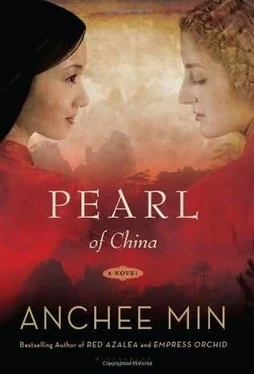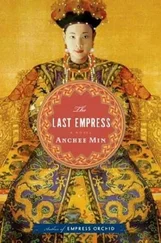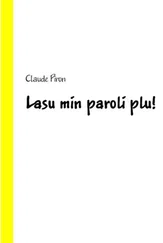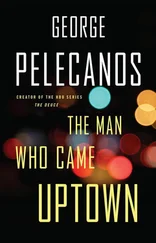“The trouble is that you don’t earn enough money.”
“No, I don’t.”
I thought about Pearl ’s mother and the way she had felt trapped all her life.
“Would you put up with him for Carol’s sake?” I asked.
Pearl ’s hands went through her wet hair. She bit her lower lip and shook her head, slowly but firmly.
“The reality is…”
“Listen, Willow. Last month I succeeded in placing two essays, in South East Asia Chronicle and the American Adventure Magazine. Although the payments weren’t much, it gave me hope.”
“Pearl, look, it’s difficult for anyone to make a living these days. It’s doubly hard for a woman. You know that.”
“I am not going to let anything stop me.” She was determined. “My gut feeling tells me that writing is my best chance. I must try.”
“With your Chinese stories?”
“Absolutely. I believe in my Chinese stories. No other Western author can come close to what I offer-what life is really like in the Orient. For God’s sake, I’m living it. The Chinese world cries out for exploration. It’s like America once was-fertile and full of promise.”
Pearl and I made a new discovery: the poet Hsu Chih-mo. In the summer of 1925, Hsu Chih-mo was called “the Renaissance Man” or “the Chinese Shelley.” Promoting the working class’s right to literacy, he became the leader of China ’s new cultural movement. Pearl and I were strong supporters of Hsu Chih-mo.
“A bush at the foot of the mountain can never enjoy what a pine would…” I shared with Pearl from Hsu Chih-mo’s essay titled “On Universe.” “To touch the fantastic rolling clouds the pine must hang dangerously from the cliff.”
In return, Pearl sent me a section of his essay “Morality of Suicide,” enclosed with her own note: “Let me know if you don’t fall in love with the writer’s mind.”
What is wrong is that these suicides embody the values of our society and set our moral standard: a village girl who drowns herself instead of yielding to her abusive mother-in-law; a businessman who hangs himself to escape debt; an Indian who sacrifices himself to feed crocodiles and a minister who drinks poison to demonstrate his loyalty toward the emperor.
We dishonor the integrity of the individual by honoring these deaths. We make death sound glorious. In my opinion, the people who commit suicide are not heroes but victims. I offer them pity and sympathy but not respect and admiration. They are not martyrs, but fools. There are other types of suicide, which I think are truly glorious and worthy-such as that of the characters in Shakespeare’s Romeo and Juliet. Their deaths touch us because we identify with their humanity.
The wind was harsh. Gigantic pines stood solemnly against the gray sky. Pearl and I sat with the city view below our feet, discussing Hsu Chih-mo. We knew a lot about him already. He earned a degree in law at Peking University. Then he went to England to study economics but instead earned a degree in literature. Next he attended Columbia University in America and majored in political science. What interested us most was his graduate thesis, The Social Position of Women in China.
Pearl recited Hsu Chih-mo’s poem titled “Cancer in Literature.”
The language smells of a dying room
Rotten, filthy and stinky
Anxiety and struggle
No means of escape
Youthful enthusiasm
Hope and ideal
Grass grows through concrete
To reach sunlight and air
“You are falling in love with Hsu Chih-mo,” Pearl teased.
I wished that I could deny it. I took an assignment in Shanghai so that I could attend Hsu Chih-mo’s poetry reading. I was excited to find that he was everything I had imagined. He was a six-foot-tall, handsome northern Chinese. He had silky, curly black hair. His leaf-shaped eyes were gentle, although his gaze was intense. Under his Mongolian high-bridged nose was a sensuous mouth. He read passionately. The world around me disappeared.
I entrust
The poplar catkins have all fallen
I entrust
The cuckoos confuse nights with days
And cry “It’s better to return!”
To the bright moon
I entrust an anxious heart
Who says you are a thousand miles away
I entrust
Moonlight will shine on you
I entrust
The frost kisses the marshland’s tender reeds
I followed Hsu Chih-mo and bought tickets to his lectures. I dressed for him and hoped that our paths would cross. He didn’t appear to notice me, but I felt rewarded just to be able to see him.
In Shanghai I learned that I was among thousands of women who dreamed of Hsu Chih-mo. We threw ourselves at him like night bugs at a light.
Pearl told me that Hsu Chih-mo was a constant subject of gossip columns. His affairs with three different women had made headlines in the Shanghai Evening News and the Celebrity Magazine. The first was his wife by an arranged marriage. She was the daughter of a wealthy family in Shanghai and followed Hsu to England. The couple committed the unthinkable: They issued a public letter claiming that their relationship was loveless and wrong. Chinese society was stunned by the word divorce. Cynics believed that Hsu had abandoned his wife to pursue other women. The wife returned home to give birth to their son and continued to live with and serve Hsu Chih-mo’s parents.
It was said that the beautiful Miss Lin was Hsu Chih-mo’s second lady. She was an American-educated architect and the daughter of Hsu’s mentor, a professor of Chinese literature in England. Miss Lin was said to be torn between Hsu Chih-mo and her fiancé, a famous scholar of Chinese architecture. After much publicized drama, Miss Lin chose her fiancé over Hsu Chih-mo. Hsu Chih-mo’s third lady was a courtesan from Peking. He married her in an effort to save her from opium addiction and alcohol. Their marriage was troubled from the start. It had been a staple on the front pages of newspapers and magazines.
Pearl sent me a telegram while I was still in Shanghai. My heart took flight withevery word: “Hsu Chih-mo is scheduled to visit Nanking University. He is accompanying Tagore, a poet from India. You’d better hurry because I have sent Hsu Chih-mo an invitation to give a talk in my class and HE HAS ACCEPTED!”
The roles of host and guest were reversed from the beginning. Hsu Chih-mo was getting more attention than his distinguished guest, Tagore. The two stood shoulder to shoulder onstage in front of a podium. Tagore read his poem Gitanjali as Hsu Chih-mo translated. Listeners packed the hall. Students applauded at each of Hsu Chih-mo’s sentences.
Looking like a brass temple bell, Tagore was wrapped in a brown blanket. Although he was only in his fifties, the Chinese thought him older because of his chest-length gray beard. In contrast, Hsu Chih-mo was slender, youthful, and stylish. One could easily tell that he was what the crowd had been waiting for. He was the reigning prince of Chinese literature.
Tagore grew increasingly uneasy as the students cheered Hsu Chih-mo. Turning to Hsu Chih-mo, Tagore said, “I thought the crowd was here to see me.”
“Yes, sir,” Hsu Chih-mo assured him. “The people have come to celebrate your work.”
Pearl and I sat in the front row. I wore my silver Shanghai-style coat with a crimson silk scarf. Pearl had arrived late. She wore her wrinkled brown jacket and black cotton skirt and was in a pair of Chinese peasant shoes. Her socks were so worn they hung loose at her ankles. From the disarray of her hair, I knew she’d just had a problem with Carol.
“I can’t believe it. You didn’t bother to dress up,” I whispered in her ear.
She cut me off. “Just be glad that I am here.”
I wouldn’t let her off easily. “It’s Hsu Chih-mo, for God’s sake. How often do we get to meet with a celebrity?”
Читать дальше












